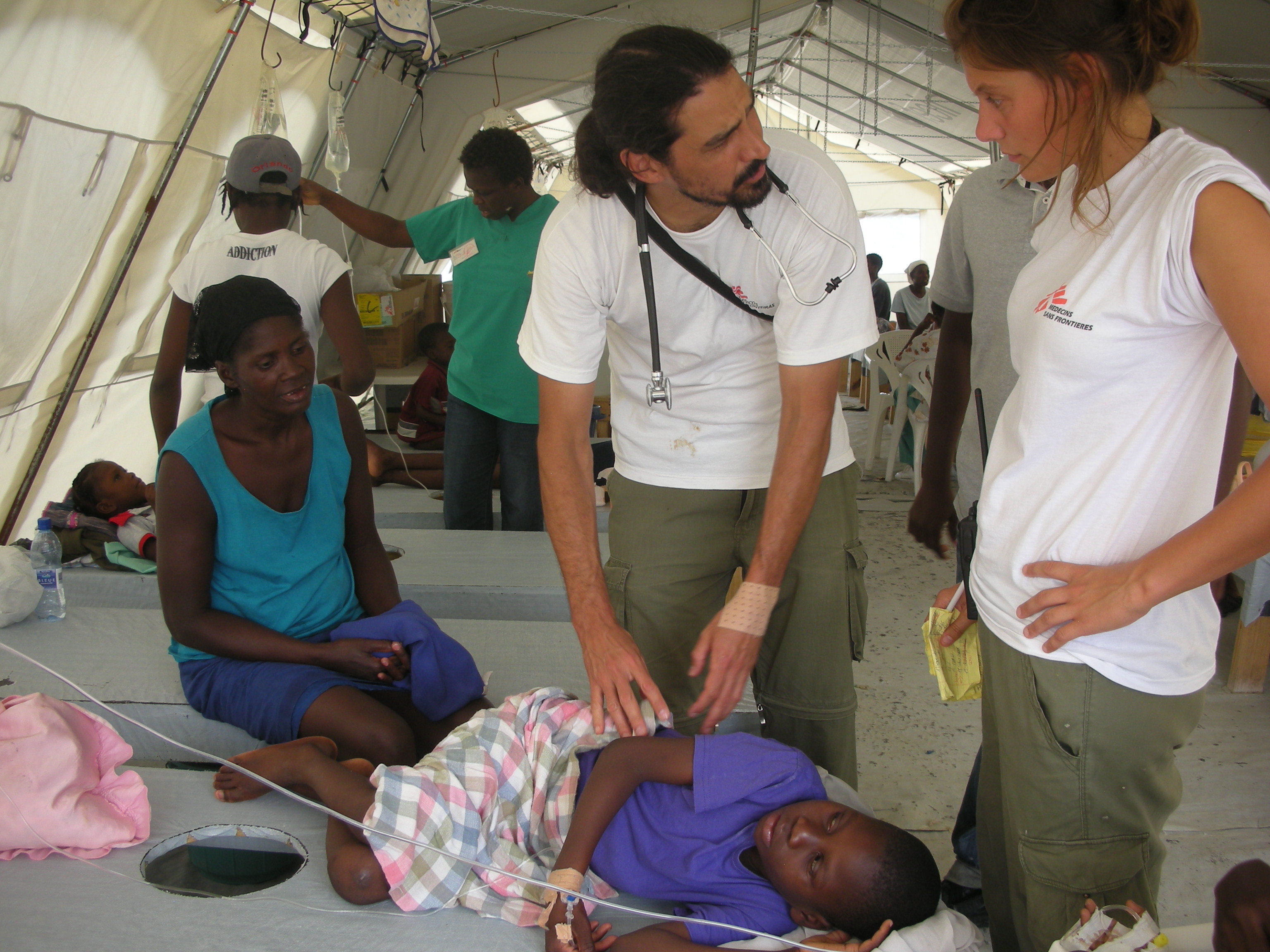HAITI: ALARMING RESURGENCE OF CHOLERA
PORT-AU-PRINCE, June 3, 2011 — The cholera epidemic in Haiti is far from
over, with a sharp increase in cases seen in the capital, Port-au-Prince,
and outbreaks reported elsewhere in the country, the international medical
humanitarian organization Doctors Without Borders/Médecins Sans Frontières
(MSF) said today.
Enlarge this image
AURELIE BAUMEL/MSF
Although the cholera epidemic began to decline in February, it has not yet
ended. In MSF cholera treatment centers (CTCs) in Port-au-Prince, medical
teams have witnessed an increase in cases since mid-May.
MSF had to reopen emergency CTCs to prevent existing treatment centers in
Carrefour, Delmas, Martissant, Cité Soleil and Drouillard from being
overwhelmed.
"Since May 29—in one week—MSF has treated almost 2,000 patients in the
capital, and we have also been asked to intervene in other areas in the
interior of the country,” said MSF head of mission, Romain Gitenet.
“Workload should be shared and coordinated in order to increase cholera
treatment capacity in Haiti. Too many public facilities are still
inadequate."
It is essential that Haitian authorities and their humanitarian partners
mobilize to stop the spread of the disease by strengthening national
surveillance systems and treatment facilities. Immediate improvements in
hygiene, sanitation, and drinking water supplies should be a national
priority, in order to protect the most vulnerable people.
”Vigilance is still the best protection,” said Gitenet. “People must be
strict about their hygiene and drink treated water. As soon as cholera
symptoms appear, such as vomiting and diarrhea, it is vital that people go
as quickly as possible to a treatment center. Cholera is treatable, but
without medical care it kills quickly."
By the end of May cholera had killed nearly 5,000 people from among the
300,000 cases reported in the country. Three percent of the country’s
population has contracted the disease.
MSF has treated 130,000 Haitians for cholera (43 percent of total cases).
As soon as the first cases were confirmed in October 2010, MSF teams
deployed to 9 of Haiti’s 10 departments to support local health facilities.
Doctors Without Borders / Medecins Sans Frontieres
| Wehaitians.com, the scholarly journal of democracy |
